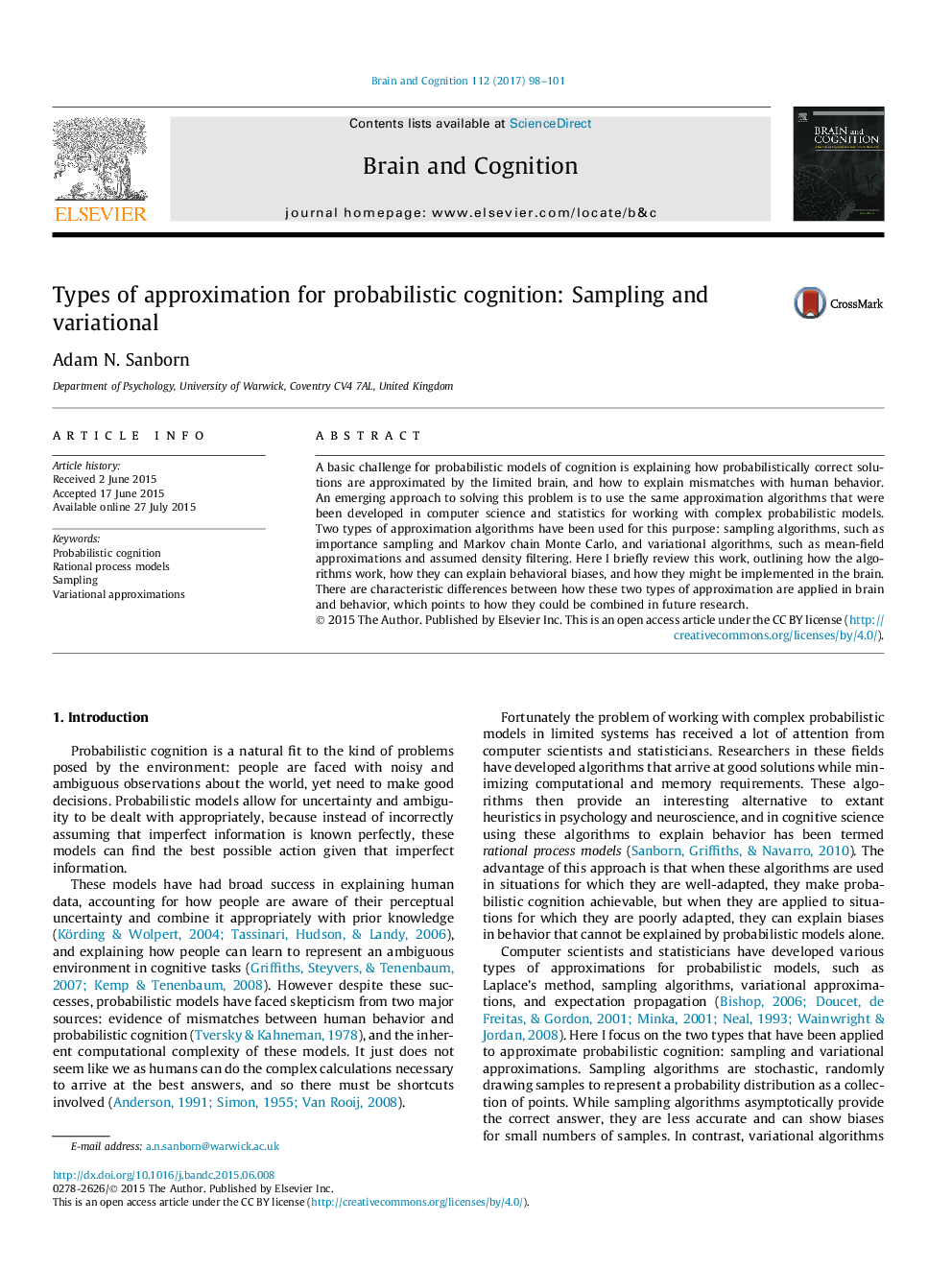| کد مقاله | کد نشریه | سال انتشار | مقاله انگلیسی | نسخه تمام متن |
|---|---|---|---|---|
| 5041105 | 1473959 | 2017 | 4 صفحه PDF | دانلود رایگان |
- Probabilistic models can be complex and can mismatch behavioral data.
- Approximations from statistics can solve both problems.
- Sampling and variational approximations have been proposed for brain and behavior.
- These approximations have characteristic differences, but can be combined.
A basic challenge for probabilistic models of cognition is explaining how probabilistically correct solutions are approximated by the limited brain, and how to explain mismatches with human behavior. An emerging approach to solving this problem is to use the same approximation algorithms that were been developed in computer science and statistics for working with complex probabilistic models. Two types of approximation algorithms have been used for this purpose: sampling algorithms, such as importance sampling and Markov chain Monte Carlo, and variational algorithms, such as mean-field approximations and assumed density filtering. Here I briefly review this work, outlining how the algorithms work, how they can explain behavioral biases, and how they might be implemented in the brain. There are characteristic differences between how these two types of approximation are applied in brain and behavior, which points to how they could be combined in future research.
Journal: Brain and Cognition - Volume 112, March 2017, Pages 98-101
